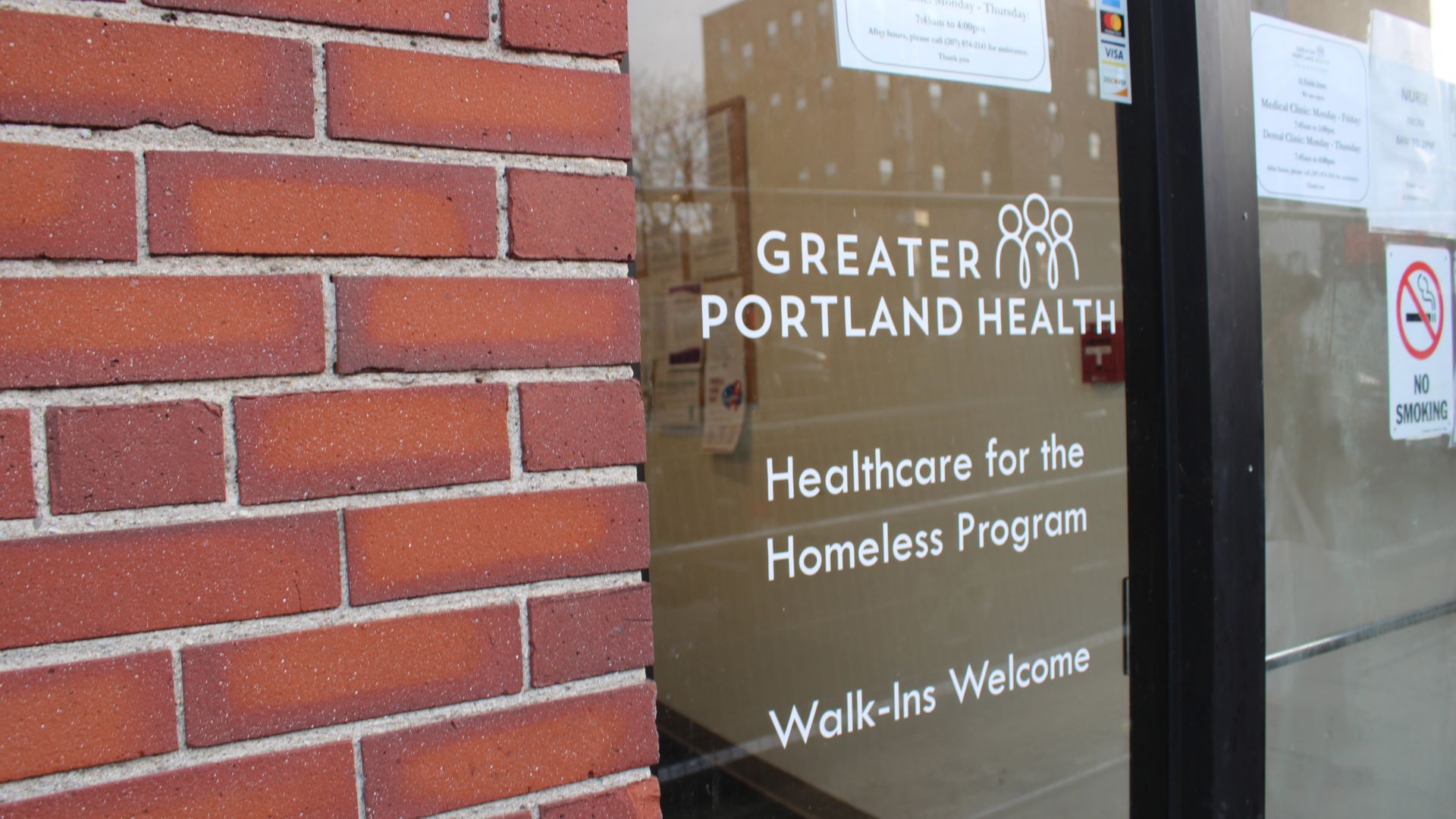Greater Portland Health staff members say poor management, understaffing and low morale have compromised patient safety and quality of care, according to documents reviewed by The Maine Monitor.
The concerns were expressed in a February letter to senior leadership signed by staff at the nonprofit’s flagship location at 180 Park Ave. in Portland, as well as a 20-page memo distributed to more than 50 staff members in mid-April. The memo detailed “themes and specific concerns” from several facilitator-led “listening sessions” held earlier in the month.
Founded in 2009 as the Portland Community Health Center, Greater Portland Health is a federally qualified center with 14 locations in Portland, South Portland and Westbrook. GPH accepts patients regardless of their ability to pay, providing care to some of the most vulnerable communities across southern Maine.
Many of its patients are immigrants, asylum seekers or refugees, according to its website, and about 40% are homeless.

“A list of concerns coming out of three years of being in health care and a pandemic have been presented … We have quickly worked together with the staff and hired a third-party consultant to support us in a process of vetting concerns, putting together solutions and an implementation process,” CEO Ann Tucker said Friday.
“We are very excited about the process that we’ve put together, the collaboration that’s going on across the organization, and feel very positive about the next chapter.”
A letter sent to GPH leadership earlier this year spelled out the employees’ concerns about a “staffing crisis” they say puts patients at risk.
“We feel that the quality of care we are able to provide, given our current limitations, is no longer acceptable. We believe that the senior leadership team has unrealistic expectations of staff and they have shown a lack of understanding of what frontline workers are experiencing,” reads the Feb. 2 letter addressed to Tucker, Chief Medical Officer Renee Fay-LeBlanc, Chief Financial Officer Bob Zager and Chief Operating Officer Cassandra Cote Grantham.
The 34 signatories include 13 doctors and nurse practitioners, including two clinical program coordinators, as well as registered nurses, medical assistants, patient service representatives, community health outreach workers, and other providers and support staff.
The one-page letter states that inadequate staffing, insufficient training, poor communication and low morale are putting the “safety of our patients and the well-being of our team” at risk.
Senior leadership also fails to include frontline workers in the decision-making process, the letter said, which leads to policies “far removed from how the clinic is run on a day-to-day basis.”
Tucker quickly responded, according to emails reviewed by The Maine Monitor, offering to hire a “skilled facilitator to support our conversation.”
In early April, GPH held several “listening sessions” with 180 Park Ave. staff, led by attorney Rebekah Smith of Seven Tree Solutions, a mediation and arbitration company.
On April 12, Tucker sent a memo of the “themes and specific concerns” from the listening sessions compiled by Smith. The email was addressed to more than 50 staff members, including senior and middle management.
The 20-page document is a laundry list of concerns and grievances that run the gamut from panic buttons that don’t work to allegedly witnessing children receiving expired vaccines.
“The vaccine program was very disorganized and nearly failed due to the lack of investment in a skilled full-time worker,” one comment in the document said.
One patient received an unnecessary vaccine, the document said, because the medical assistant “misread the order.”
Another patient, a 4-month-old, received a flu vaccine. The U.S. Food and Drug Administration has authorized those vaccines for children 6 months and older. The comment said the staff running the vaccine clinic was “likely overwhelmed.”
One comment said leadership compiled a list of concerns at a staff retreat last fall, “but nothing was ever implemented and no plans were made to address the concerns.”
A major theme of the listening sessions was poor management and a lack of understanding from leadership. A number of comments said concerns brought to management and senior leadership are dismissed, or staff “feel criticized if they are too vocal with management.”
Several comments said management has dismissed concerns that staff are overworked.
“It feels disrespectful and unsustainable to deliver care this way, and significant errors are being made,” one said.

Paul Santomenna, the board president, said he believes Tucker is handling the situation “well.”
Asked if the board is concerned about Tucker’s leadership, he said it’s “not concerned about Ann’s leadership at all.”
“The list that I saw was sort of contained to one site and my experience of Ann as a leader has always been positive,” Santomenna said.
“What we’re seeing is the result of three years of a pandemic, you know, people working extremely hard under really difficult conditions, and the stress and strain that can come out of that.”
Some comments gathered by the consultant point to the organization’s growth.
“GPH has grown so much and they have opened so many other locations and now they are opening another one, but they have the same number of employees,” said one comment, according to the list compiled in the listening session.
“The growth has been really detrimental.”
Some comments suggest the concerns date to before the pandemic.
One person said feedback about a dangerous level of understaffing was brought to leadership years ago and another said, “the themes are the same and they have always had staff shortages but it is worse now for a variety of reasons.”
Emily Bader is the newest reporter for The Maine Monitor and covers healthcare. Submit story ideas to her by email to gro.r1752534698otino1752534698menia1752534698meht@1752534698ylime1752534698 or anonymously through the newsroom’s contact form.








